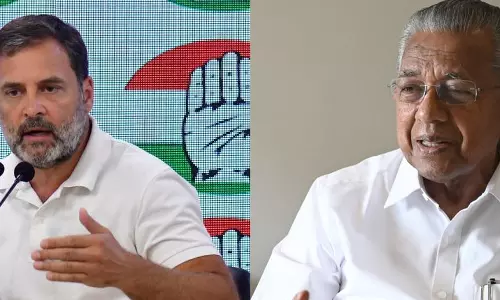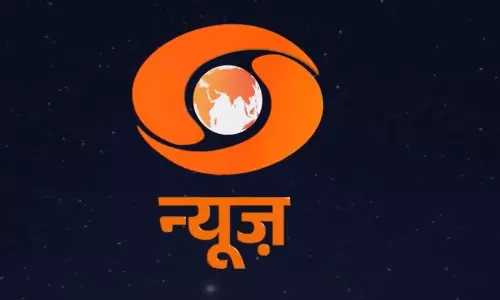
Money power continues to rule
text_fieldsFigures published by Association for Democratic Reforms (ADR) regarding the funding sources of major political parties, clearly tell the disregard of parties and leaders for values like honesty, credibility and transparency.
The non-governmental organization compiled the amounts above Rs 20,000 of donations received by the national political parties during 2017-18 based on their disclosures to Election Commission. According to this, the amount received by the ruling party at the Centre, BJP is 12 times the total received by all other parties put together. BJP received Rs 437.05 crore via 2,977 donations whereas the Congress stood second with Rs 26.65 crore from 777 donations. Ranking further below are NCP, CPM, Trinamool Congress and CPI with a mere one or two crore. The major chunk of the BJP reeeipts (Rs 154.30 crore) came from a trust named Prudent Electoral Trust. Not to be unfair, the donor did not let down the Congress either. Although their donation to Congress was a mere 10 crore, they led the tally of donors to that party too. There is no surprise in the ruling party at the Centre receiving more funds. But the big gap between it and the second party in the ranking is sure to be reflected in electoral campaigns and consequently in voting. Altogether, the figures that have come out tell us that all our boast of features like free and fair elections all end up as a big jokes.
But more concerning are some other facts brought to light by the said report. The disclosures would give a lie to the notion that the political parties are so scrupulously honest to disclose all the quoted facts so accurately. Thus, to the question whether they are so laudably forthright, the answer given by ADR is in the negative. The parties that submitted their returns – BJP, Congress, CPI and CPM – did not submit PAN card details for 219 donations amounting to Rs 4.95 crore. Here again BJP leads the table with 119 such donations without the documents. There are cases where fictious or incomplete PAN details were given and where cheque/DD and bank details were not furnished. And this when as per a Supreme Court order of 13 September 2013, just like filing of a candidate's affidavit , the parties are required to complete and submit Form 24A with details of donations they received. But what the parties do is just fulfil a formality by submitting a report. Therefore it has to be assumed that the figures that have come to public domain now and what the parties actually collect and spend may not have much connection.
In this context, ADR recommends that donors of funds should declare the value of donations in such a way as to be available under the Right to Information (RTI) Act. The report also recommends that national and local political parties should submit full and factual statement of donations to the Commission and that the sources of income and channels of expenditure of parties should be brought under RTI jurisdiction. These are the ways, the report emphasizes, to strengthen elections and even democracy. But an enquiry about how sincere our politicians are about such demands would only disappoint us. When the Election Commission put forward a suggestion last August to impose a ceiling on the donations that political parties can receive, the party that came forward to oppose it was the one claiming to be 'the party with a difference', i.e. BJP. Its argument to justify this was that it would need a huge expense to make publicity about the policies and programmes of parties, and if that is restricted people would vote based on caste and personal influence.
Therefore, the BJP contented, collections needed transparency, and not ceiling. But when it comes to transparency, BJP's hyocrisy is laid bare by the finance bill pushed through parliament in March 2017. Till then, giant corporates were allowed to donate to political parties only below 7.5 per cent of their gross profit. And there was also a stipulation that they had to disclose to which parties they gave donations and how much to each. But the bill that BJP got passed in parliament was an amendment that removed the limit of donations and the requirement to disclose: a clear sign of how values become irrelevant in electoral politics. All this illustrates that in the upcoming general elections of this year what will be put to test is not the unfitness of prime minister Narendra Modi or the suitability of Rahul or the strength of regional parties, but the king-making power of money to determine results.























